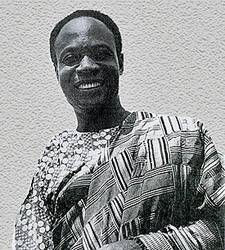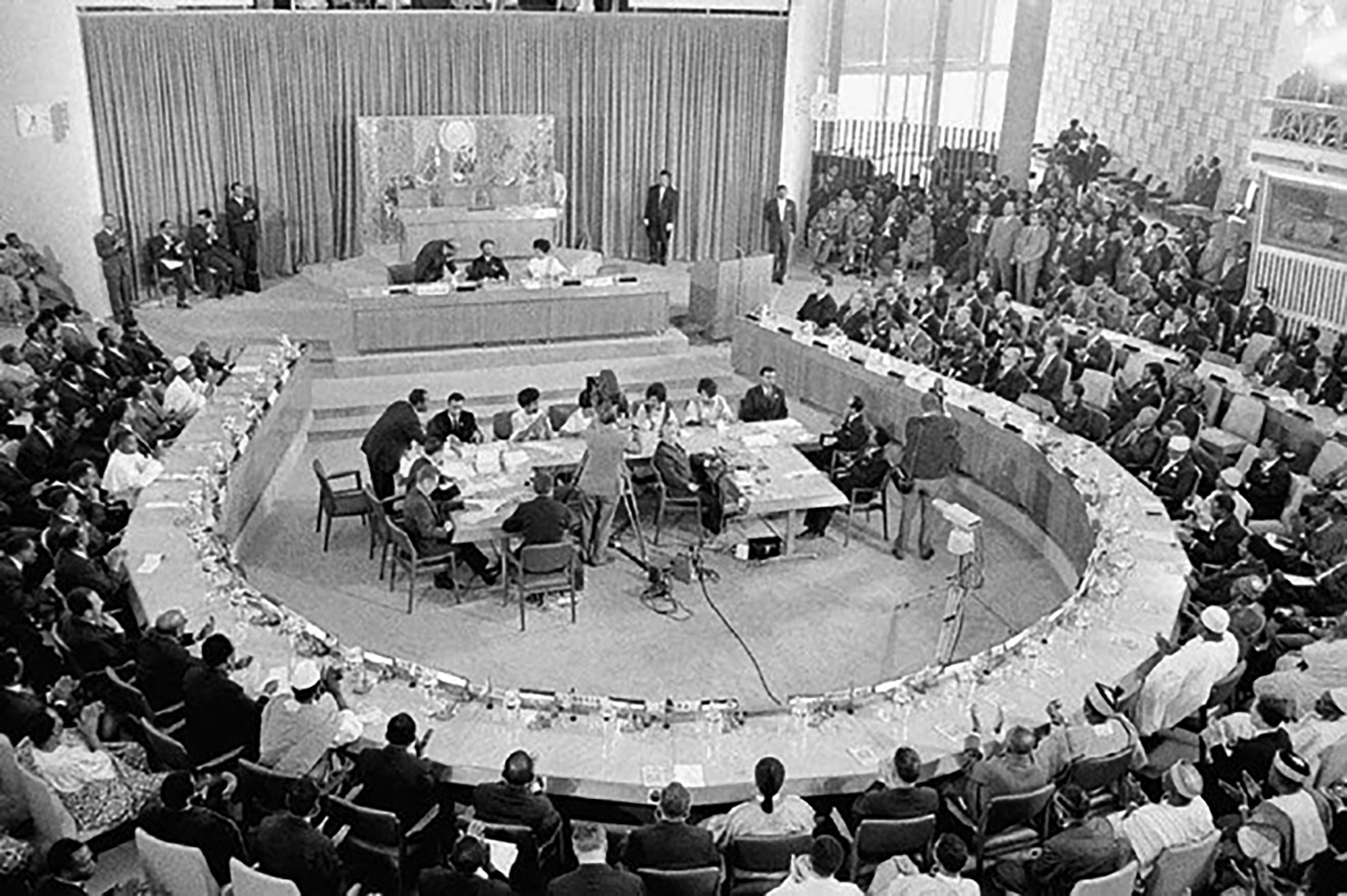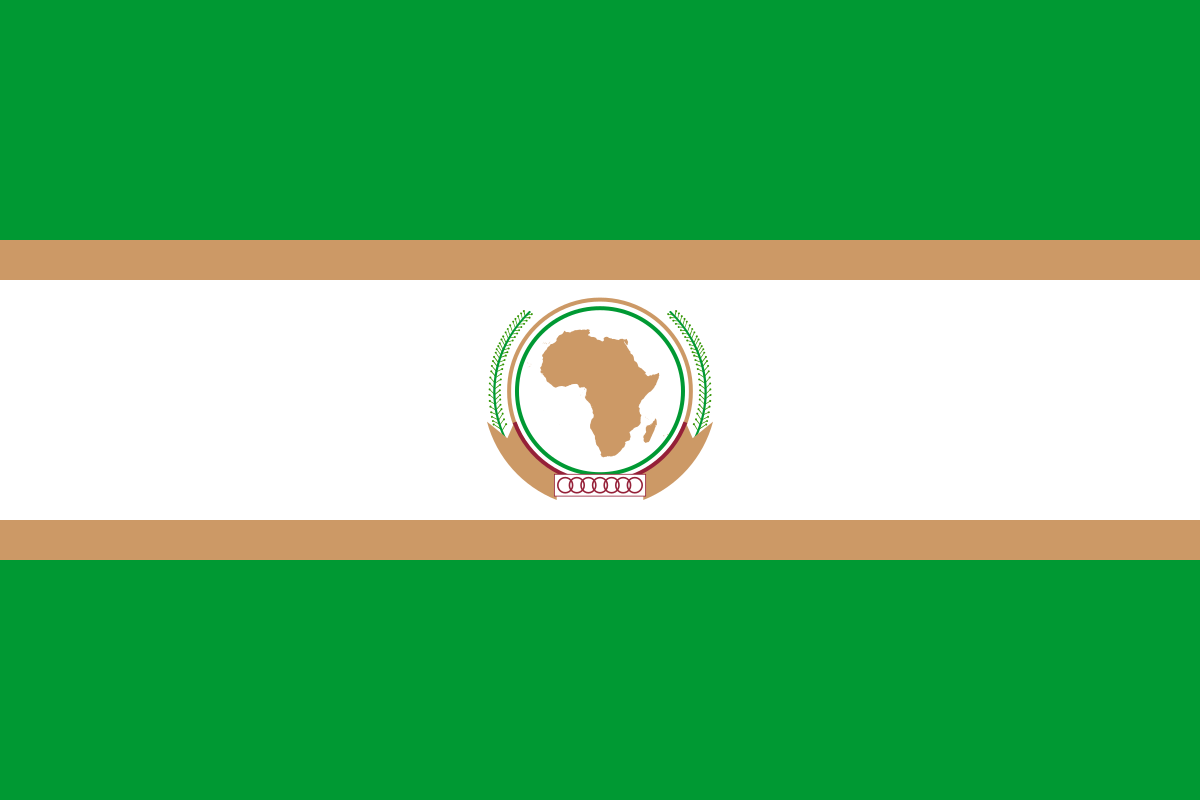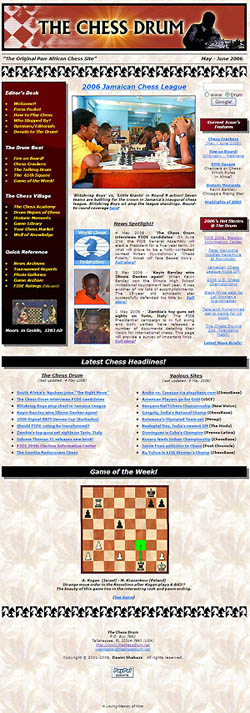Can Pan-Africanism work in Chess?

Marcus Mosiah Garvey
In the year 1900, people of African descent assembled in London, England for the 1st Pan-African Congress. The congress drew many luminaries from the Diaspora including those from mainland Africa, the Caribbean and the U.S. W.E.B. Dubois and Trinidadian Sylvester Williams were the main organizers of the historic conference which was designed to bring a semblance of unity along political and ideological lines.
Whether or not this conference was successful cannot be determined by the number of conferees, nor whether every point on the agenda was covered. The importance of this conference was based on the mere fact that it was held! The consensus of many was that the conference spark the idea of Pan-African unity that had been sparked by the vision of Pan-Africanist pioneer E.W. Blyden of Liberia.
W.E.B DuBois & Marcus Mosiah Garvey
After the initial Pan-African Congress, there were several more held, but three held in 1919, 1921 and 1927 were amidst very turbulent times. Marcus Mosiah Garvey of Jamaica would be a figure emerging from that era and inspired millions of Black people around the world with his idea of African redemption. His slogan was “Africa for the Africans” and his ultimate idea was to set up a colony in Liberia for Blacks who wanted to repatriate and co-exist in an independent African homeland. He founded the Universal Negro Improvement Association (New York, USA) which was said to boast more than one million card-carrying members throughout the African Diaspora. Garvey was known for his eloquent and uncompromising speeches, ambitious economic plans and his festive parades.
Ironically, Garvey was at bitter odds with DuBois in their ideological interpretations of Pan-Africanism. DuBois, who help to co-found the National Association for the Advancement of Colored People (NAACP), wanted a more conservative approach and called Garvey’s efforts “overambitious” and “wasteful.” He envisioned that the educated class of Blacks, or the “Talented Tenth” would lead the masses to civil equality in America. After DuBois’ ideas never found fertile soil, he grew disenchanted with the racist social policies of America and embraced socialism. While he reviled at Garvey’s ideas, he eventually repatriated to Ghana where he died and is buried. So much could have been accomplished had these men decided to put aside their differences.
Kwame Nkrumah: Pan-African Visionary
The 1945 5th Pan-African Conference was perhaps the most successful and served as a catalyst for many developing nations in Africa winning their “independence” since all of Europe had been devastated by World War II. African nations had to chart their own course of progress. At this conference were several revolutionary leaders fighting to throw off the yoke of colonialism. One person instrumental in its success was Dr. Kwame Nkrumah of Ghana. Nkrumah, who was influenced by Garvey, had attended Lincoln University in the U.S. and was moved by the plight of the Blacks in the country.

Dr. Kwame Nkrumah
He sought to lead his country to independence and in 1957, he stood in Independence Square and proclaimed the freedom of the Gold Coast… which he named “Ghana.” He put a black star in the center of Ghana’s flag in honor of Garvey’s “Black Star” shipping fleet designed to enhance trade amongst people in the African Diaspora. He then urged a number of Blacks from America to repatriate and help in building the new Republic.
At Ghana’s independence ceremony on March 6, 1957, he stated, “Ghana’s independence is meaningless unless it is tied to the independence of the African continent.” A teary-eyed Nkrumah saw the Ghanaian flag rise and he would embark on an ambitious Pan-African vision. His vision was to form a continental federation of African states which would operate as a unified political and economic entity.
He articulated his vision of a “United States of Africa” at the 1958 All-African People’s Conference prior to a torrent of African nations winning their independence as Ghana had done a year earlier. Many of his contemporaries felt his ideas were too ambitious and that African nations were not ready for such a step. There were many factions.

The meeting of the OAU in Addis Ababa in May 1963 held promise for the continent’s future, but it ultimately fell short of its marks.

To add to the mélange of ideas put forth, Shirley Graham DuBois read a prepared statement of her husband W.E.B. DuBois in which he openly embraced socialism and called on African nations to build external ties to non-European allies. Ultimately, a compromise was had in the form of the Organization of African Unity (OAU) founded in 1963.
The OAU was considered by historians to be a functional failure as every attempt to implement a cogent plan was undermined by national interests. With the OAU becoming increasingly irrelevant, 53 African nations decided to revamp the organization and launched the African Union in 2002. As the world continues to reformulate into trading blocs, the African continent has been working to carve out a niche in the international economy. However, there has not been a sustainable Pan-African attempt in the past 50 years to included the entire African Diaspora. There have been a number of summits and conferences, but no sustainable programmes have emanated from them.
Pan-Africanism in Perspective
Today, many Black scholars have begun to revisit Garvey’s Pan-African view as one worthy of reconsideration. The repatriation plan may not win many followers, but the idea of cooperation between Blacks in Africa, the Caribbean, the Americas and Europe seems to be a logical thought. Nkrumah’s name has been mentioned when discussing the vision of the nascent African Union. He was perhaps a bit ahead of his time, but his ideas bear relevancy to Africa’s concerns in the 21st century.
Does Pan-Africanism apply to chess? Let us say that the answer is unequivocally… YES! If the basis of Pan-Africanism is the collective effort of those in the Diaspora, then there are a couple of ways to view this. In Garvey sense, it can mean supporting chess activities anywhere in the African Diaspora (assisting in chess education, serving as host to players at tournaments or merely providing moral support for another federation’s activities or even a fundraising project). This would take involve some type of formalized arena for discussing ideas for the betterment of chess in the African Diaspora. A website, blog or discussion can help to build cross-continental bridges. The Chess Drum is an effort to serve as such a bridge for Pan-African unity and as a vehicle of diverse information, but there is much more that can be done to further this initiative.

Chess Pan-Africanism and Sub-Regional Collaboration
In Southern African subregion, there is collaboration as federations routinely support tournaments and activities in neighboring countries. South Africa has been a magnet for activity and most recently Botswana and Zambia have held a number of successful tournaments. Angola is one of the strongest African chess nations, but it appears to be a bit isolated.
.jpg)
Angola’s Luzia Guimaraes and Valquiria Rocha
at 2006 Olympiad in Turin, Italy
Photo by Daaim Shabazz
Federations in the North African subregion play in both Europe and the Middle East and boast all the continent’s Grandmasters (four). The East African countries such as Uganda and Kenya regularly cross borders to “pawn off.” The West African subregion is buoyed by the presence of Nigeria, but apart from newcomers Gambia and Sierra Leone, chess is virtually absent in the subregion. Draughts (10×10 checkers) has a strong presence in Francophone West Africa and only Côte d’Ivoire has shown any chess activity.
There needs to be more regional integration if chess is to blossom on the continent. These issues posed the same problems in the Nkrumah era as each subregion had their own unique scenarios and were hard-pressed to come together on a common platform. The Organization of African Unity exposed the fissures that prevented effective collaboration and eventually the organization was rendered impotent. African chess officials (continental and zonal Presidents) can draw from these lessons and perhaps move the continent forward on the chess front.
Chess, Pan-Africanism and the Internet
Due to the commoditization of information technology, the Internet has become an important platform for chess and thus can be used as a viable vehicle for the exchange of chess ideas and collaborative efforts. For example, if we take the African continent and its three zones, a process of gradual functionalism can occur leading to greater cohesion and unity. The span of control of such a large region with only 600 players (four Grandmasters) would necessitate increased communication thereby:
- each federation would have a functional website (no matter how basic)
- each zone would have a website with pertinent news, announcements and updates
- each of the zonal websites would include links of federation websites within the zone
- each zone will have a chess correspondent to feed information to website
- zonal websites will exist as part of a “web ring” supporting the others
- zones can make the use the of blogs and discussion boards for timely discussions
From all indications, training appears been quite irregular and is handled on a country-by-country basis. Some initiatives that may prove feasible could be:
- “friendship” Internet matches organized between promising players
- Annotation Clashes” involving top Masters from different zones and regions
- transcontinental online chess leagues involving teams from various zones
- the conducting of online lessons and online theme tournaments
- opening laboratories via discussion boards and the Internet chess servers
- an African game database and player profile database
- an online account of African chess history
The Struggle Continues!
There are some additional ideas that may help to develop talent and they can be applied in any of the zones. One idea could be a Grandmaster Developmental Institute for promising players in a selected zone. Each player would submit to a rigorous application process in order to receive an award for training, travel stipend and competitions. There could also exist other incentives such as a zonal awards for top player or perhaps an award for largest rating increase. An award could be given to the federation with the most active membership. There are endless incentive programs to make chess exciting and competitive in regions where chess has failed to blossom.
The countries in the African Diaspora have a charge to seek greater assistance in furthering their respective chess agendas. Oftentimes, it is not enough for the local federation to lobby for funding and assistance from the government. Hopefully, the party winning the FIDE election on June 2nd will provide logistical support for chess development in these regions. Unfortunately, chess activity in places where people of African descent are dominant lag behind other developing regions. If we can take anything from the lessons of Marcus Garvey and Dr. Kwame Nkrumah, we should know that we need to be proactive in our pursuit of chess excellence through cooperation, collaboration and unity. Pan-Africanism is the way forward!
Composed: 17 May 2006
